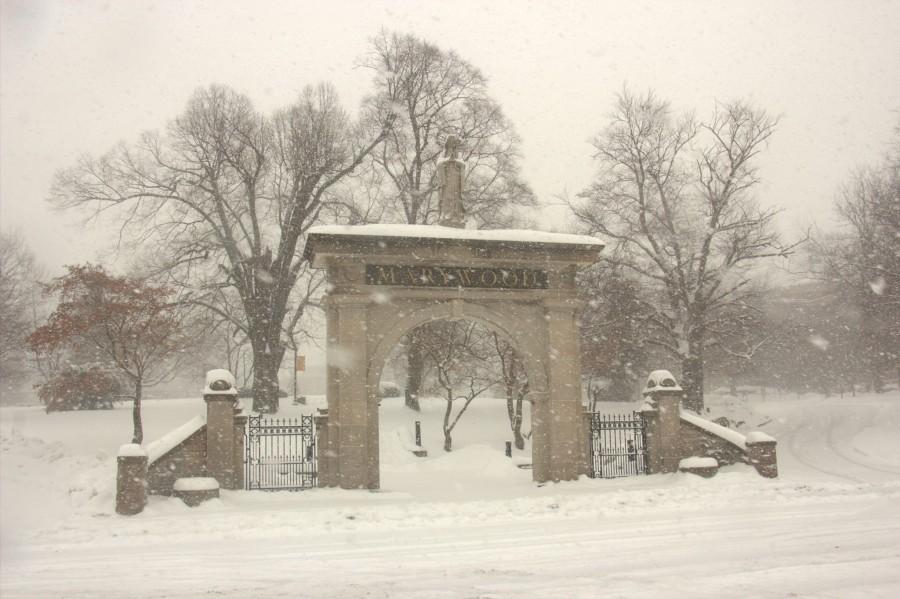Policy committee revises severe weather policy
Photo credit/ File photo
February 15, 2016
A new severe weather policy might be put to the test this week.
While this winter has been virtually free of snow, the new policy was put into effect to help both students and faculty communicate when the weather prevents travel to campus.
Melissa Kowalski, president of Student Government Association (SGA), said SGA began working on the updated policy at the beginning of fall semester.
Kowalski said the policy has “never been tackled in the past,” and with the number of commuters on campus, SGA felt it was time to revamp it.
“We have three commuters on our executive cabinet this year and the school is mostly commuters,” Kowalski said.
According to Kowalski, the president of SGA always sits on the Policy Committee and offers input on policies on behalf of the student body. For the severe weather policy, Austin Colllingon, vice president of SGA, handled the writing of the policy update.
“He [Colllingon] first met with the deans and Dr. Levine, and he met with them twice, trying to revise and make a plan,” Kowalski said. The goal was to create a plan that was suitable for both faculty and students.
One part of the policy that was discussed is the amount of time required for a teacher to notify students of a class cancellation or for students to inform a teacher of their absence in the event that campus remains open, but weather conditions in areas not immediate to campus are unfavorable. According to the policy, each party must notify the other at least 90 minutes before the start of class.
After these meetings, the policy was submitted to the executive cabinet of the Policy Committee in November.
“They [gave] us input, what their thoughts are, if this is something we can bring to the entire policy committee,” Kowalski said.
The cabinet approved for the policy to go to the entire committee.
According to Dr. Frances M. Zauhar, the policy was originally brought to the Dean’s Council earlier in the fall, but since it was a policy proposal, it had to go to the policy committee.
“Any entity that is recognized by the university can request a policy be enacted or changed,” Zauhar said.
Zauhar explained that after a policy is proposed, the attorney for the university will examine the policy and who it affects. In this case, the parties are students and faculty. Then, the policy needs to go to the Academic Council, Student Government and Faculty Senate for approval.
Due to the timing of the policy proposal, faculty senate was not able to originally look at the policy before the committee meeting, so it went before the committee “contingent upon endorsement from Faculty Senate,” Zauhar said. Faculty Senate did end up supporting the policy change.
When the policy was brought to the committee, there were some concerns with some of the requests of the policy, like teachers giving out the lecture notes for classes.
“We had a bit of a discussion about whether people should be required to post their lecture notes,” Zauhar said. It ended up being decided that faculty would not be required to post the notes, but the decision would be up to the individual teacher.
The policy also asked teachers to notify students of cancellations 90 minutes before the beginning of class. Similarly, students must also notify their teachers in a timely manner regarding missed classes.
Another concern was from the faculty in the Reap College who have to participate in clinical hours. Since they can’t be made up, it is harder for those hours to get cancelled due to inclement weather.
Both Zauhar and Kowalski stressed the policy is still a living document and anyone with concerns or questions are more than welcome to reach out. The next SGA meeting is set for 9 p.m. Feb. 16.





